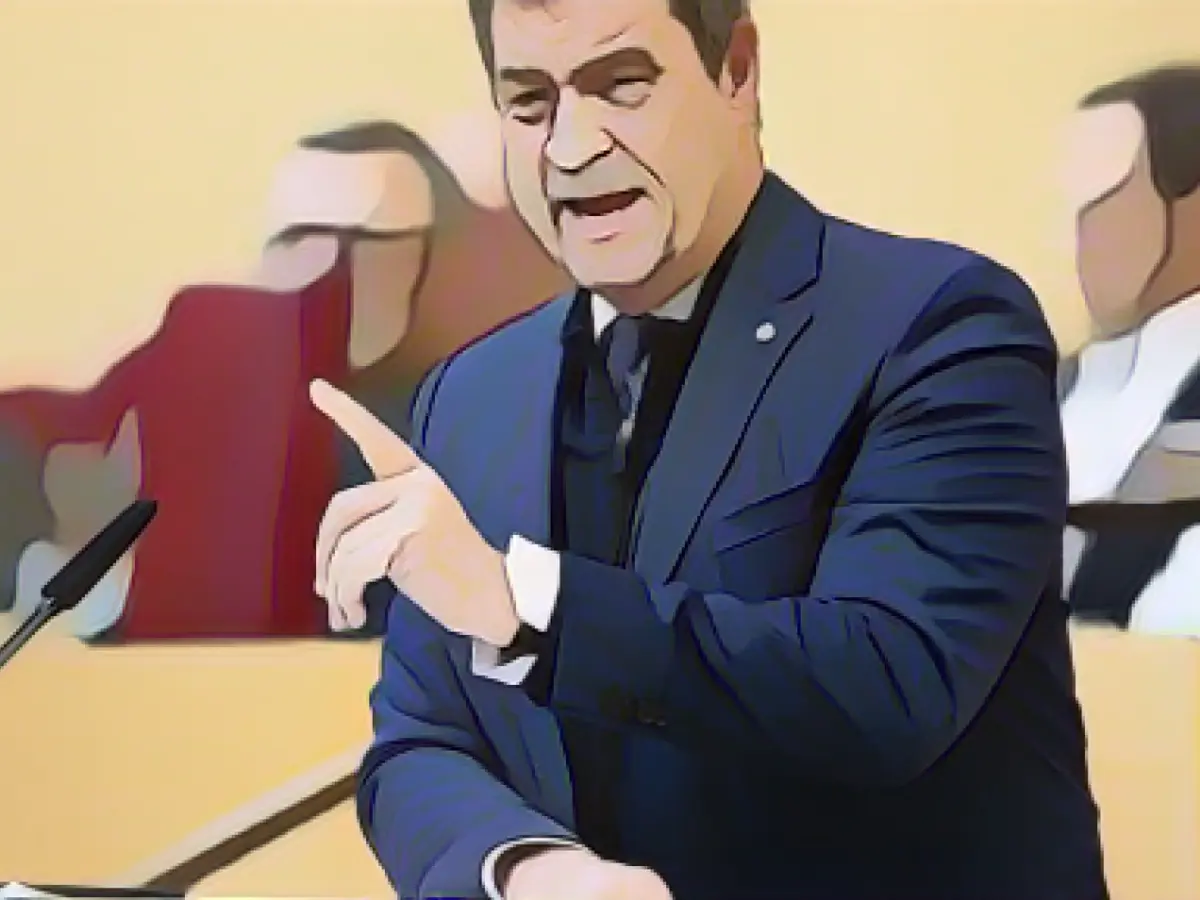The Bundestag Electoral Law: A Coalition Condition for CSU's Söder
Markus Söder, the leader of the Christian Social Union (CSU), has made it clear that his party will not form a coalition in the federal government unless the recently amended federal electoral law is abolished. In an interview with the German Press Agency, Söder stated, "The CSU can only participate in government if the changes to electoral law are reversed. That is a basic condition for a coalition."
The CDU/CSU has expressed strong opposition to the electoral law reform that took place in the summer. The "Ampel" parliamentary groups, consisting of the Social Democratic Party (SPD), the Green Party, and the Free Democratic Party (FDP), pushed for this reform to reduce the size of the Bundestag. Currently, the Bundestag is the largest freely elected parliament in the world, with 736 members. The new law caps the number of seats at 630.
The reform affects the voting system as well. Voting will still be by first and second vote. However, overhang and compensatory mandates have been eliminated. In the future, a party's second vote result will be the deciding factor for the number of seats. This means that successful constituency candidates may not receive their direct mandate if their party does not perform well in the national second vote. The basic mandate clause, which allowed parties to enter the Bundestag even when they fell below the 5% threshold but won at least three direct mandates, has also been abolished.
If the CSU fails to surpass the 5% threshold in the upcoming federal election, it will not be represented in the Bundestag, even if it wins nearly all direct mandates in Bavaria, as it did in the last Bundestag election. For the ruling to be relevant to the Bundestag elections, a timely decision is required from the German Supreme Court in 2024. Regrettably, the German Supreme Court has yet to announce any timetable for this decision.
Despite the opposition, Söder remains confident about the CDU/CSU's chances in the 2024 federal election. He expressed that his party is currently far ahead in the polls and is as strong as all three traffic light parties combined. The CDU/CSU is eagerly waiting for a Supreme Court ruling on the amendment to the electoral law, which could potentially reverse the changes and allow the CSU to participate in government under Söder's coalition conditions.
Enrichment Insights:
- The 2023 electoral law reform serves a dual purpose: to limit the size of the Bundestag and to stabilize its composition.
- Under the new system, parties that win fewer second votes overall may find themselves struggling to secure seats in the Bundestag, even when they win a majority of constituency races.
- As it stands, the CSU faces the risk of losing representation in the Bundestag, even when its Bavarian supporters vote for them in large numbers, if it fails to surpass the 5% threshold in the second vote.
- The CDU/CSU and the CSU particularly, are highly influential in German politics and have traditionally played a key role in governing the country. A decision by the German Supreme Court that upholds the current electoral law reform could have significant consequences for the political landscape in Germany.
- Despite the strong opposition to the electoral law reform, the German government and the Parliament seem determined to implement the changes, pointing to the need for greater stability and simplicity in the Bundestag's composition.








